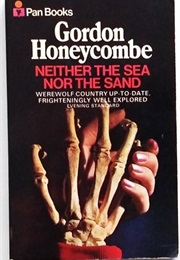
With a frontispiece by Aubrey Beardsley.Publisher: British Library, Historical Print EditionsThe British Library is the national library of the United Kingdom. (Image: the frontispiece was done by the talented Aubrey Beardsley the drawing does not look to be his most inspired work (see Stanley Weintraub’s Beardsley for why =]), but do take a look at this collection.Title: A Book of Bargains. Horror Masters is a good resource for stories of the supernatural, of Vincent’s, it has: “Will”, “The Business of Madame Jahn”, “The Interval”, “Master of Fallen Years”, “When I Was Dead”, and “The Burned House”.(I hope to add some of his other works to .) Unfortunately, their scan of Sentiment, his second of two novels, is the edition without the stories, and they don’t have his first novel, my favourite, The Good Girl. has the story collection Human Affairs, and the Decadent “prosetry” of The Green Window.“Vincent O'Sullivan: Unstrung Second Fiddle”, an essay that compares him to other Decadent poets, and discusses in detail his story collection A Dissertation Upon Second Fiddles, which is said to read like an English Léon Bloy.(Note: the book is very hard to come by, only 400 were printed, has a creepy cover, and it contains his rarest story, “The Monkey & Basil Holderness”, which I am desperate to read.) Jessica Amanda Salmonson’s essay, “A Fallen Master of the Macabre” it is from the introduction to Master of Fallen Years: The Complete Supernatural Stories of Vincent O'Sullivan (London: The Ghost Story Press, 1995).A few of my favourites are “Hugo Raven’s Hand”, “My Enemy and Myself”, “The Bars of the Pit”, and the novella-length “Verschoyle’s House”. However, that story is quite mild in comparison to some of O'Sullivan’s others. His most widely anthologized story, “When I Was Dead”, was described by Robert Aickman as a “spasm of guilt”, “sudden and shattering” Aickman included it in The Fourth Fontana Book of Great Ghost Stories (1967), a long-running series he edited. O'Sullivan’s prose is vivid, flowing, and capable of deathly sudden twists.

Sheridan Le Fanu, Bram Stoker, Vernon Lee, and, one of Crowley’s cronies, William Seabrook-immediately stood out for their delivery, if not their content. His stories-even in a collection that includes such figures as J.

It was in Montague Summers’ The Supernatural Omnibus (1931) that I first noticed O'Sullivan’s artistry. Oscar Wilde, after having read O'Sullivan’s poems, commented: “In what a midnight his soul seems to walk! and what maladies he draws from the moon!”, and such a remark aptly characterizes most of O'Sullivan’s oeuvre.

Vincent James O'Sullivan (1868-1940) was an American-born writer of macabre stories and Decadent poetry.


 0 kommentar(er)
0 kommentar(er)
